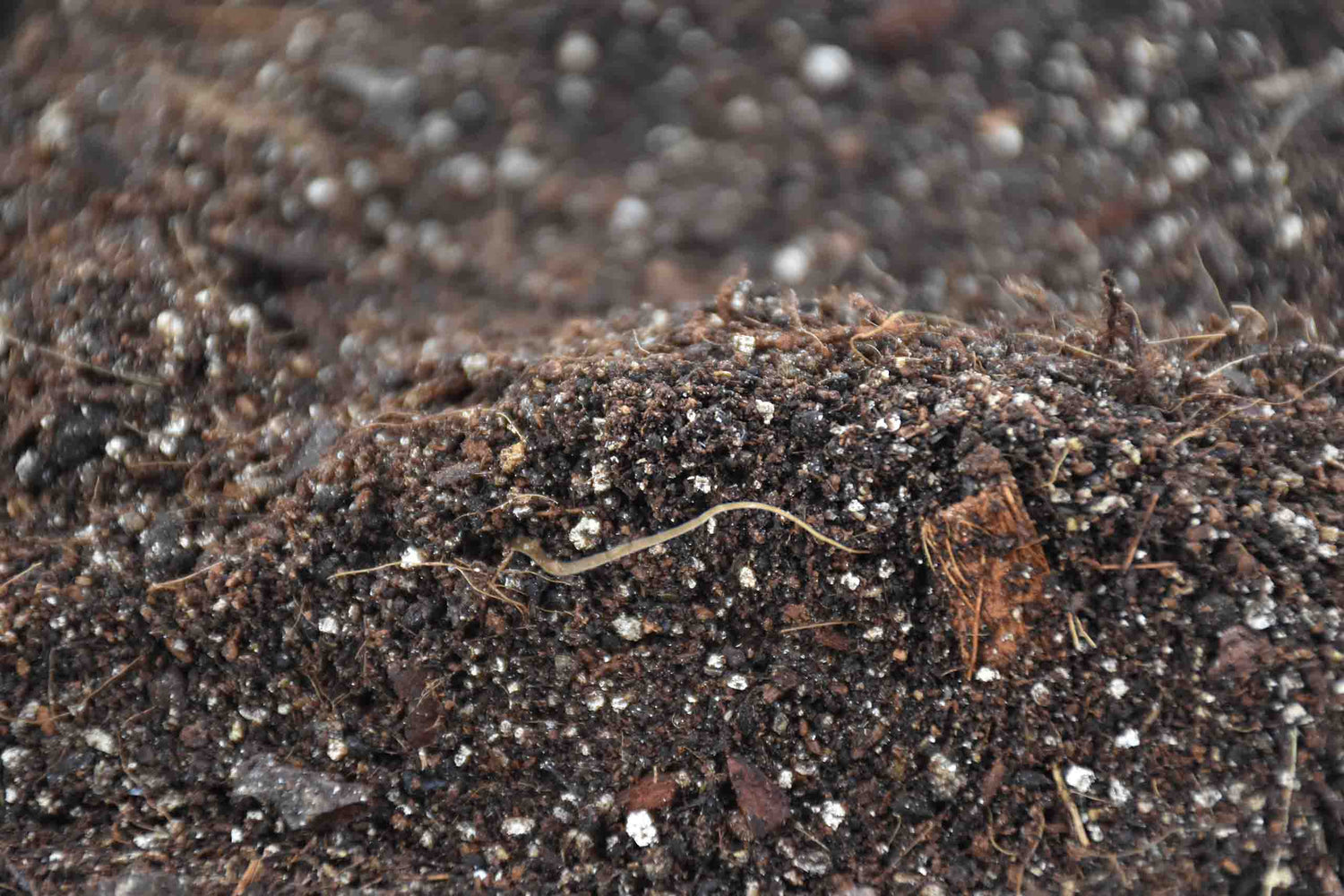
SYBASoil: Premium Plantejord
Håndblandede kokosbaserede jordblandinger til dine planter. Giv dine planter den jord, de...

Håndblandede kokosbaserede jordblandinger til dine planter. Giv dine planter den jord, de...
0,00 DKK
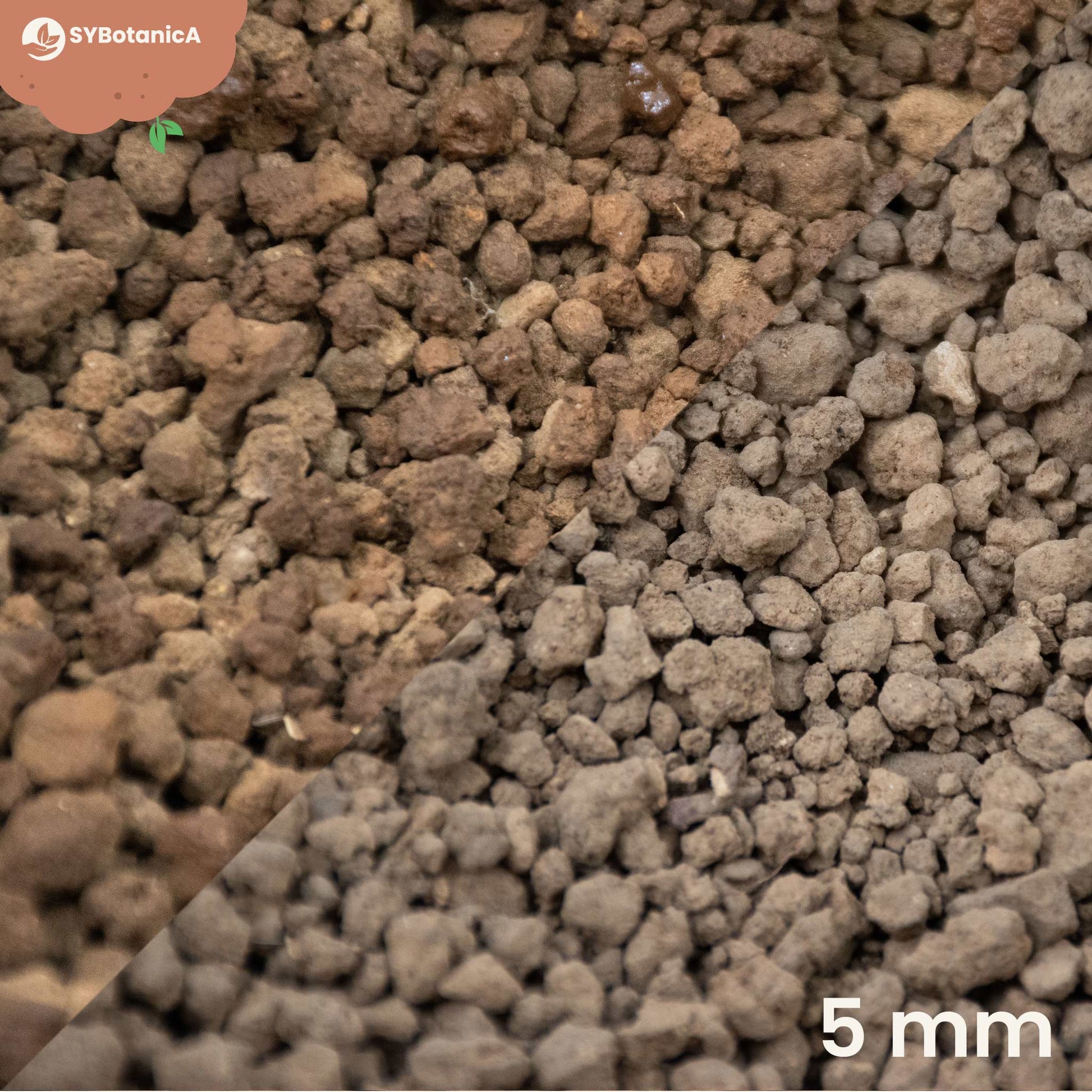
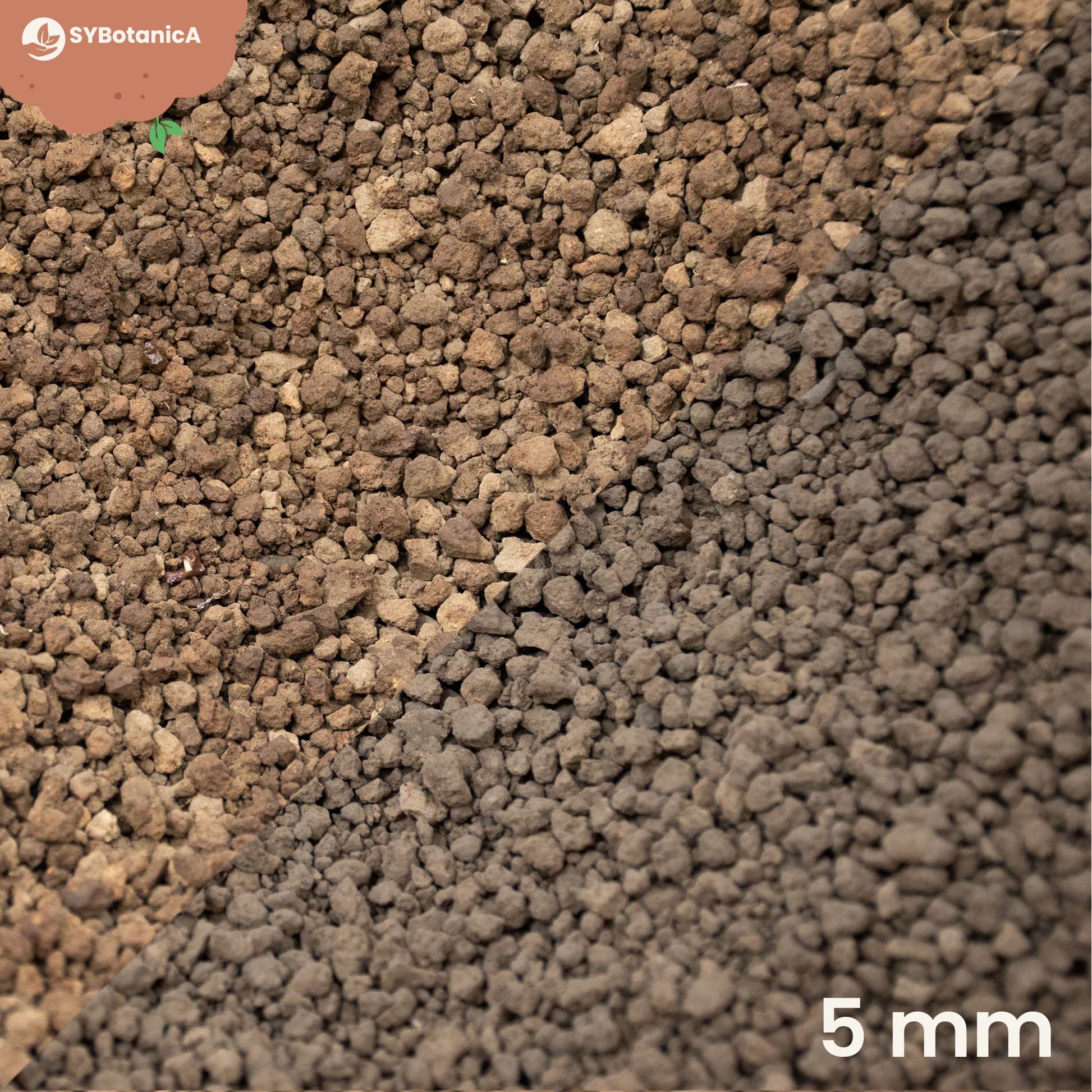
Gør din plantepleje endnu bedre med vores alsidige 5 mm Akadama, en premium jordforbedringsmiddel, der er kendt for sine enestående egenskaber.
Akadama stammer fra Japan og er en vulkansk ler, der har været brugt i århundreder til dyrkning af bonsai. Dens kornede struktur giver den perfekte balance mellem vandretention og dræning, så dine planter får lige den rette mængde fugt.
Akadamas porøse struktur gør, at den kan holde på vandet effektivt og samtidig forhindre vandmætning, hvilket er et almindeligt problem med andre jordtyper. Dette hjælper med at opretholde et optimalt miljø for rodvækst, hvilket fremmer robuste og sunde planter. Derudover sikrer Akadamas fremragende luftningsegenskaber, at rødderne får tilstrækkelig ilt, hvilket forhindrer komprimering og fremmer en kraftig rodudvikling.
En af de mest fremtrædende egenskaber ved Akadama er dens evne til at fungere som en visuel vandingsindikator. Kornene bliver mørkere, når de er fugtige, hvilket hjælper dig med at bestemme, hvornår du skal vande dine planter. Denne egenskab er især gavnlig for begyndere, da den reducerer risikoen for over- eller undervanding.
Vores 5 mm Akadama bruges mest til bonsai, men dens alsidighed gør den velegnet til en lang række planter, herunder kaktus, sukkulenter og orkideer. Indarbejd Akadama i din planteplejerutine og oplev forskellen i planters sundhed og vækst. Dens overlegne vandforvaltnings- og luftningsegenskaber gør den til et uundværligt valg for både nybegyndere og erfarne planteentusiaster.
Akadama og Kiryu er begge populære jordforbedringsmidler i bonsai-dyrkning, men de adskiller sig på flere vigtige punkter.
Akadama er en vulkansk ler, der er kendt for sine enestående vandbindings- og dræningsegenskaber, hvilket gør den ideel til at opretholde et optimalt fugtighedsniveau og forhindre rodbrand. Den giver også fremragende lufttilførsel, hvilket understøtter sund rodvækst og udvikling.
Kiryu er en type pimpsten med en grovere struktur og er værdsat for sine overlegne dræningsegenskaber, hvilket gør den særligt effektiv til at forhindre jordkomprimering og sikre en robust luftstrøm til rødderne. Mens Akadama ofte bruges til en bred vifte af bonsai, foretrækkes Kiryu ofte til planter, der kræver fremragende dræning, såsom nåletræer og andre bonsai-arter, der trives i tørre forhold og klimaer.
5mm
Opnå perfekt fugtbalance og rodhelse for din Bonsai, Kaktus, Sukkulent, Orkidéer og andre stueplanter med vores alsidige 5mm Akadama.
På lager
Kunne ikke indlæse afhentningsmuligheder
100 % tilfredshedsgaranti eller pengene tilbage!
Socialt ansvarlig produktion
Gør din plantepleje endnu bedre med vores alsidige 5 mm Akadama, en premium jordforbedringsmiddel, der er kendt for sine enestående egenskaber.
Akadama stammer fra Japan og er en vulkansk ler, der har været brugt i århundreder til dyrkning af bonsai. Dens kornede struktur giver den perfekte balance mellem vandretention og dræning, så dine planter får lige den rette mængde fugt.
Akadamas porøse struktur gør, at den kan holde på vandet effektivt og samtidig forhindre vandmætning, hvilket er et almindeligt problem med andre jordtyper. Dette hjælper med at opretholde et optimalt miljø for rodvækst, hvilket fremmer robuste og sunde planter. Derudover sikrer Akadamas fremragende luftningsegenskaber, at rødderne får tilstrækkelig ilt, hvilket forhindrer komprimering og fremmer en kraftig rodudvikling.
En af de mest fremtrædende egenskaber ved Akadama er dens evne til at fungere som en visuel vandingsindikator. Kornene bliver mørkere, når de er fugtige, hvilket hjælper dig med at bestemme, hvornår du skal vande dine planter. Denne egenskab er især gavnlig for begyndere, da den reducerer risikoen for over- eller undervanding.
Vores 5 mm Akadama bruges mest til bonsai, men dens alsidighed gør den velegnet til en lang række planter, herunder kaktus, sukkulenter og orkideer. Indarbejd Akadama i din planteplejerutine og oplev forskellen i planters sundhed og vækst. Dens overlegne vandforvaltnings- og luftningsegenskaber gør den til et uundværligt valg for både nybegyndere og erfarne planteentusiaster.
Akadama og Kiryu er begge populære jordforbedringsmidler i bonsai-dyrkning, men de adskiller sig på flere vigtige punkter.
Akadama er en vulkansk ler, der er kendt for sine enestående vandbindings- og dræningsegenskaber, hvilket gør den ideel til at opretholde et optimalt fugtighedsniveau og forhindre rodbrand. Den giver også fremragende lufttilførsel, hvilket understøtter sund rodvækst og udvikling.
Kiryu er en type pimpsten med en grovere struktur og er værdsat for sine overlegne dræningsegenskaber, hvilket gør den særligt effektiv til at forhindre jordkomprimering og sikre en robust luftstrøm til rødderne. Mens Akadama ofte bruges til en bred vifte af bonsai, foretrækkes Kiryu ofte til planter, der kræver fremragende dræning, såsom nåletræer og andre bonsai-arter, der trives i tørre forhold og klimaer.
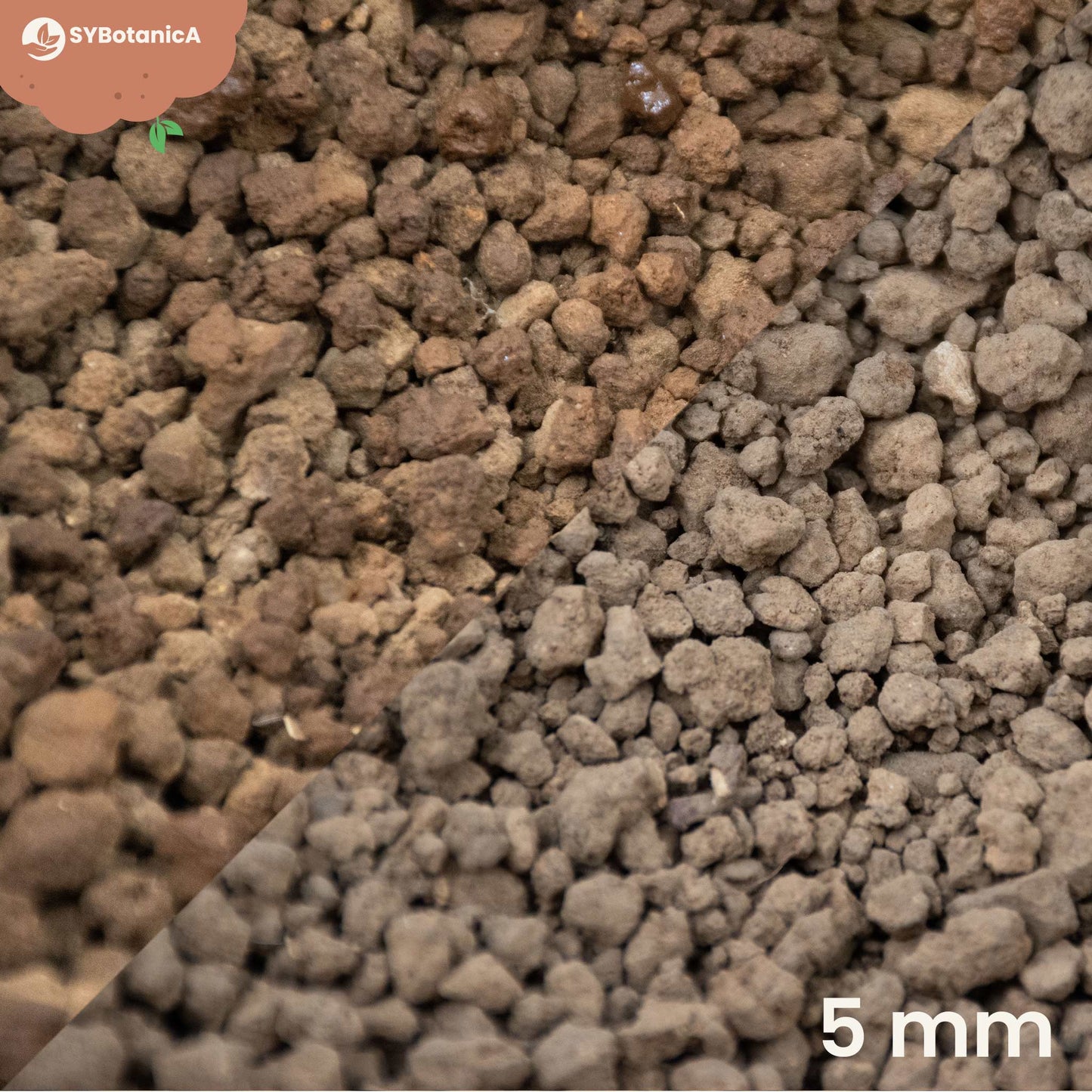
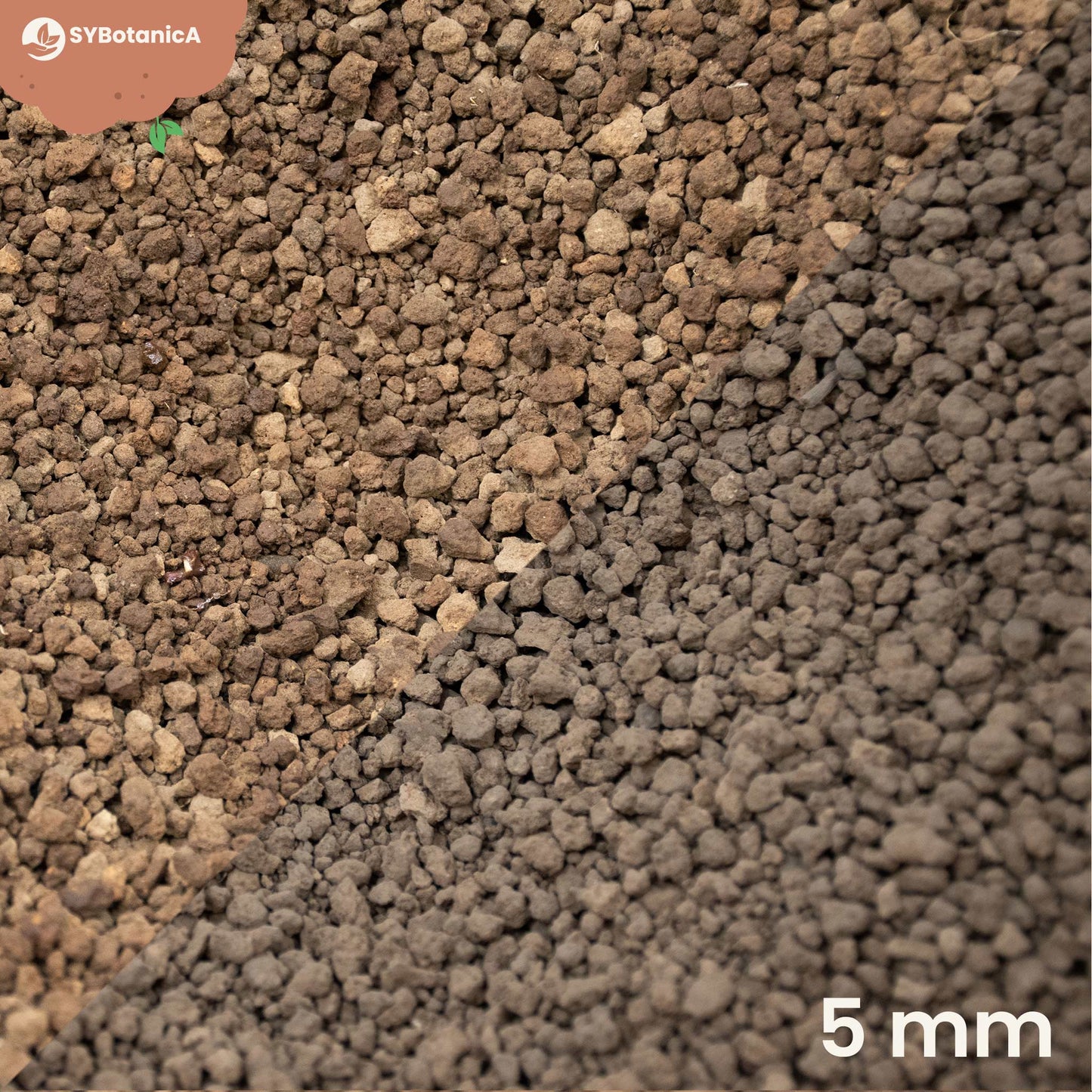
100 % tilfredshedsgaranti eller pengene tilbage!
Bestil før 16:30 på hverdage = Afsendt i dag
Eksperten i jord